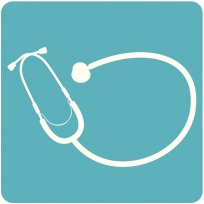Signs of Pregnancy
Am I pregnant? That is one of the most common questions we see on Ask Beth. Some women know if they are pregnant before they miss their period. But it is important to keep in mind that the only way to know for sure if you are pregnant is to miss a period and take a pregnancy test at the doctor’s office. There are other signs you can look for if your period is not regular, but it is important to keep in mind that these signs alone will not tell you for sure. They vary from woman to woman and they can be signals of other things besides a pregnancy.
To be sure, start out by taking a home pregnancy test and then follow up with your doctor to confirm its accuracy. Drug stores and pharmacies carry a variety of pregnancy tests. In most cases pregnancy support centers provide pregnancy tests free or at a minimal charge and will also provide follow-up exams and support. Call 800-712-4357 or visit www.optionline.org to find the closest pregnancy help center near you. The following are also signs of pregnancy that you can watch for: 1. Tender breasts/nipples: If you are pregnant, you will notice that your breasts and nipples become tender around three weeks after conception (when your period is about one week late). They may also feel swollen - similar to the way they feel when you expect your period. 2. Slight spotting or cramping: If you are pregnant, light pink spotting can occur at the time of implantation - when the embryo attaches to the lining of the uterus. This happens around eight to ten days following ovulation, a bit earlier than your menstrual period is due. You can usually differentiate implantation bleeding from your menstrual period if: (A) it occurs a bit earlier than expected, (B) it is scanty, spotty, pinkish (and not red and heavy like a period), and (C) it does not follow the normal pattern of a period (light, progressing to heavy and then again to light). Cramping can also be common in early pregnancy. Until the uterus assumes its mid-position and becomes better supported by the bony pelvis in the second trimester, it is prone to menstrual-like cramping. Contractions of the uterus occur regularly, increasing with exercise, orgasm and even simple changes in position. 3. Darkening areolas: In very early pregnancy - around the time of your expected period - you may notice that your areolas (the darker areas that ring the nipple) begin to darken and increase in diameter. It is believed that the darker color of the areola helps the newborn to find the nipple for breastfeeding. 4. Extreme fatigue: If you are pregnant, a very common symptom in the first eight to ten weeks is exhaustion. When you are pregnant, your body is going through significant metabolic changes. Your entire body needs to adjust to the new process of growing a baby. For most women, the fatigue starts to go away by the 12th week of pregnancy. 5. Nausea and vomiting: If you are pregnant you may find quite early on - as early as a week after conception - that you are experiencing morning sickness. And you may also find that morning sickness is a misnomer. Nausea can occur any time - day or night. 6. Frequent urination: By the time your period is one to two weeks late, you may find that you are peeing more frequently than usual. This is because the baby growing in your uterus is putting pressure on your bladder. 7. Constipation: You may notice a change in your bowels in early pregnancy. The extra hormones produced during pregnancy cause the intestines to relax and become less efficient. 8. Missed period: This may be your first sign of pregnancy, especially if you are normally quite regular. By: Beth Wechter Information provided by: Michelle Michele Faehnle, RN |
|



